Medical articles
How to manage hay fever symptoms?
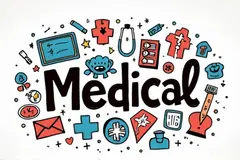 How to Manage Hay Fever Symptoms
Hay fever, also known as allergic rhinitis, affects millions of people worldwide. It can cause a range of uncomfortable symptoms such as sneezing, itchy eyes, and nasal congestion. While there are numerous over-the-counter medications available, many individuals seek natural remedies to alleviate their hay fever symptoms... read more...
How to Manage Hay Fever Symptoms
Hay fever, also known as allergic rhinitis, affects millions of people worldwide. It can cause a range of uncomfortable symptoms such as sneezing, itchy eyes, and nasal congestion. While there are numerous over-the-counter medications available, many individuals seek natural remedies to alleviate their hay fever symptoms... read more...
What is conjunctivitis?
 Conjunctivitis,, commonly known as pink eye, is a condition that causes inflammation of the conjunctiva, which is the thin transparent layer covering the white part of your eye and the inside of your eyelids. This inflammation can be caused by various factors such as bacteria, viruses, allergens, or irritants like smoke or chemicals.
Understanding... read more...
Conjunctivitis,, commonly known as pink eye, is a condition that causes inflammation of the conjunctiva, which is the thin transparent layer covering the white part of your eye and the inside of your eyelids. This inflammation can be caused by various factors such as bacteria, viruses, allergens, or irritants like smoke or chemicals.
Understanding... read more...
Is vaping safe for teenagers?
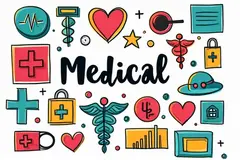 Is Vaping Safe for Teens?
Vaping has become increasingly popular among teenagers, but concerns about its safety and long-term effects have grown. This article delves into the risks associated with teenage vaping and provides insights to help parents and teens make informed decisions.
Teen Vaping: Risks & Facts
The surge in teen vaping is alarming public... read more...
Is Vaping Safe for Teens?
Vaping has become increasingly popular among teenagers, but concerns about its safety and long-term effects have grown. This article delves into the risks associated with teenage vaping and provides insights to help parents and teens make informed decisions.
Teen Vaping: Risks & Facts
The surge in teen vaping is alarming public... read more...
What is mouth sores?
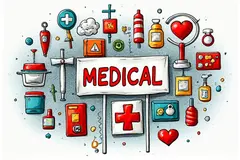 Understanding Mouth Sores: Causes & Symptoms
Mouth sores, also known as oral ulcers or canker sores, are common ailments that affect many individuals. These painful lesions can appear on the gums, tongue, inner cheeks, and lips, causing discomfort and affecting one's ability to eat, drink, and speak comfortably. This article aims to provide a... read more...
Understanding Mouth Sores: Causes & Symptoms
Mouth sores, also known as oral ulcers or canker sores, are common ailments that affect many individuals. These painful lesions can appear on the gums, tongue, inner cheeks, and lips, causing discomfort and affecting one's ability to eat, drink, and speak comfortably. This article aims to provide a... read more...
Why do we need folic acid in our diet?
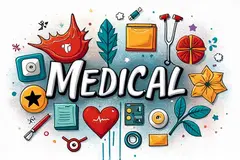 Folic acid is a crucial nutrient that plays a vital role in numerous bodily functions, from DNA synthesis to cell growth and development. Understanding why folic acid is essential can help you make informed dietary choices to enhance your overall health.
Why Folic Acid Is Vital for Everyone
Folic acid is not just important for women of childbearing age; it's... read more...
Folic acid is a crucial nutrient that plays a vital role in numerous bodily functions, from DNA synthesis to cell growth and development. Understanding why folic acid is essential can help you make informed dietary choices to enhance your overall health.
Why Folic Acid Is Vital for Everyone
Folic acid is not just important for women of childbearing age; it's... read more...
Are antidepressants good for ADHD symptoms?
 Attention Deficit Hyperactivity Disorder (ADHD) is a neurodevelopmental condition that affects millions of people worldwide. While stimulant medications are the first-line treatment, some individuals may also benefit from antidepressants as an adjunct or alternative therapy. This article explores whether antidepressants can effectively manage ADHD symptoms... read more...
Attention Deficit Hyperactivity Disorder (ADHD) is a neurodevelopmental condition that affects millions of people worldwide. While stimulant medications are the first-line treatment, some individuals may also benefit from antidepressants as an adjunct or alternative therapy. This article explores whether antidepressants can effectively manage ADHD symptoms... read more...
Understanding the Causes of Eczema
 Eczema, also known as atopic dermatitis, is a chronic inflammatory skin condition that affects millions of people worldwide. The exact cause of eczema remains unknown; however, it is believed to be influenced by genetic and environmental factors. People with a family history of allergies or asthma are more likely to develop eczema.
Several triggers can... read more...
Eczema, also known as atopic dermatitis, is a chronic inflammatory skin condition that affects millions of people worldwide. The exact cause of eczema remains unknown; however, it is believed to be influenced by genetic and environmental factors. People with a family history of allergies or asthma are more likely to develop eczema.
Several triggers can... read more...
Role of antioxidants in maintaining health
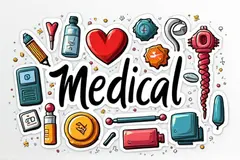 Antioxidants: Your Body's Shield Against Disease
Antioxidants are essential compounds that play a crucial role in maintaining overall health and preventing various diseases. They act as the body’s shield against oxidative stress, which is caused by harmful free radicals. These unstable molecules can damage cells and contribute to chronic conditions such as... read more...
Antioxidants: Your Body's Shield Against Disease
Antioxidants are essential compounds that play a crucial role in maintaining overall health and preventing various diseases. They act as the body’s shield against oxidative stress, which is caused by harmful free radicals. These unstable molecules can damage cells and contribute to chronic conditions such as... read more...
What is the function of platelets in blood clotting?
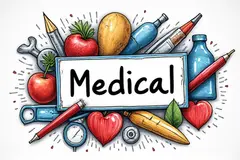 Role of Platelets in Stopping Bleeding
Platelets are small, disc-shaped cells that play a crucial role in the body's ability to stop bleeding. They are essential for blood clotting and hemostasis, which is the process by which the body prevents excessive bleeding after an injury or wound.
Understanding Platelet Function in Coagulation
The primary function of... read more...
Role of Platelets in Stopping Bleeding
Platelets are small, disc-shaped cells that play a crucial role in the body's ability to stop bleeding. They are essential for blood clotting and hemostasis, which is the process by which the body prevents excessive bleeding after an injury or wound.
Understanding Platelet Function in Coagulation
The primary function of... read more...
How many vertebrae are in the human neck?
 How Many Vertebrae Are in Your Neck?
The human neck, also known as the cervical spine, is a complex structure that plays a crucial role in supporting the head and facilitating movement. One of the most common questions people ask about their neck anatomy is how many vertebrae it contains. In this article, we'll delve into the specifics of cervical vertebrae... read more...
How Many Vertebrae Are in Your Neck?
The human neck, also known as the cervical spine, is a complex structure that plays a crucial role in supporting the head and facilitating movement. One of the most common questions people ask about their neck anatomy is how many vertebrae it contains. In this article, we'll delve into the specifics of cervical vertebrae... read more...
Can excessive sugar harm health?
 Sugar is a staple in many diets, often added to enhance the flavor of foods and beverages. However, consuming too much sugar can have serious consequences for your health. This article delves into the detrimental effects of excessive sugar intake on various aspects of well-being.
Is Sugar Really That Bad?
The debate over whether sugar is inherently bad has... read more...
Sugar is a staple in many diets, often added to enhance the flavor of foods and beverages. However, consuming too much sugar can have serious consequences for your health. This article delves into the detrimental effects of excessive sugar intake on various aspects of well-being.
Is Sugar Really That Bad?
The debate over whether sugar is inherently bad has... read more...
What is an MRI used for?
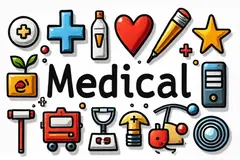 What Can An MRI Detect?
Magnetic Resonance Imaging (MRI) is a powerful diagnostic tool that can detect various conditions and abnormalities within the body. Unlike X-rays or CT scans, MRI uses strong magnetic fields and radio waves to produce detailed images of internal structures without exposing patients to ionizing radiation.
Uses of MRI Scans... read more...
What Can An MRI Detect?
Magnetic Resonance Imaging (MRI) is a powerful diagnostic tool that can detect various conditions and abnormalities within the body. Unlike X-rays or CT scans, MRI uses strong magnetic fields and radio waves to produce detailed images of internal structures without exposing patients to ionizing radiation.
Uses of MRI Scans... read more...